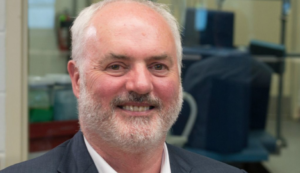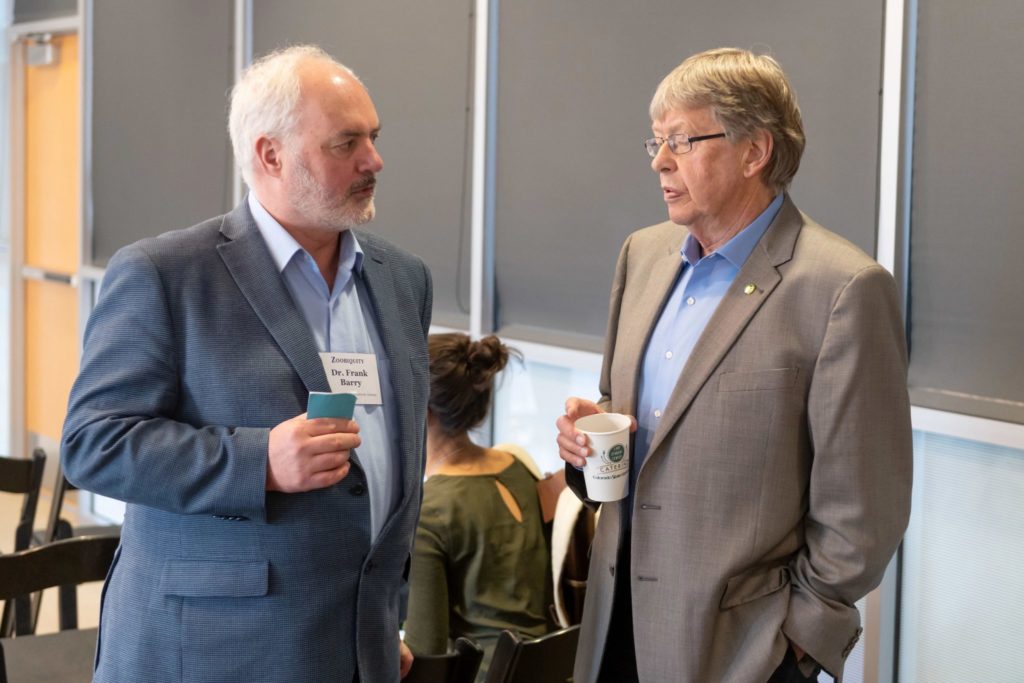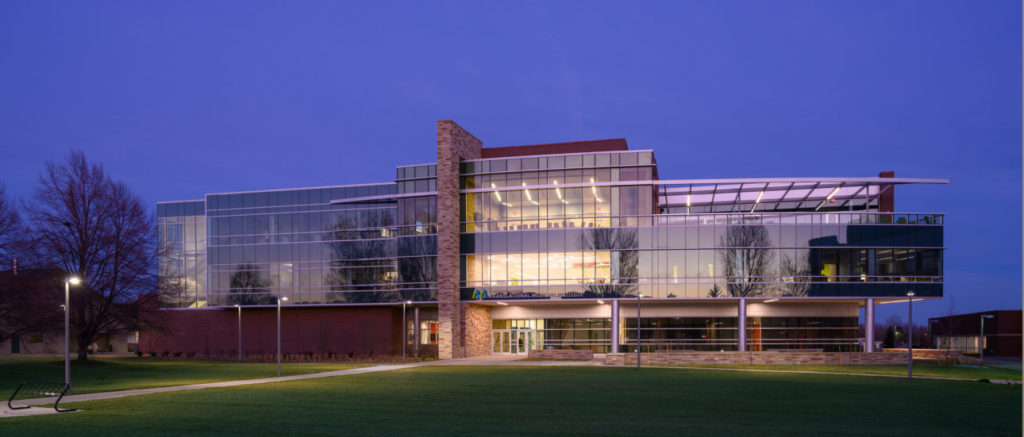
Frank Barry, Ph.D., has been selected as the new director of the C. Wayne McIlwraith Translational Medicine Institute at Colorado State University. Barry’s research and interests include stem cell biology and the development of cell-based repair strategies for osteoarthritis.
His contributions to the fields of tissue engineering and regenerative medicine include developing innovative and successful cellular therapies for tissue repair, joint injury and arthritic disease.
Barry’s official appointment begins in January 2022 and he will lead the institute’s continuing education program, research, and business development pillars.
“After a long and thorough international search, we are excited to announce Dr. Barry as our director of this transformative institute,” said Dr. Mark Stetter, dean of the CSU College of Veterinary Medicine and Biomedical Sciences.
A source of inspiration
The Translational Medicine Institute’s vision is to lead the way in the discovery and implementation of the body’s therapeutics to improve the lives of animals and their humans.
In 2003, Barry’s research using stem cells in goats to regenerate injured menisci, the thin fibrous cartilage between parts of the knee joint, inspired CSU researchers and led to the start of the stem cell program at CSU.
Today, the CSU Orthopaedic Research Center uses stem cells in surgeries and rehabilitation to regenerate and repair diseased or damaged tissue, similar to how these cells are used in humans with osteoarthritis and other conditions.
“Dr. Frank Barry is a highly respected and world-renowned scientist in regenerative therapies,” said Dr. Laurie Goodrich, director of the Orthopaedic Research Center at CSU. “His contributions to this field in both basic science and clinical applications are immense and we are excited to have his many years of proven leadership and expertise in leading this team.”
Dr. Wayne McIlwraith, a University Distinguished Professor and founding director of the Orthopaedic Research Center, described Barry’s 2003 study as “spectacular.”
“It’s changed how we’ve handled injuries,” McIlwraith said, describing how the team at CSU successfully treated horses with stem cells after conventional therapies for meniscal and cartilage injuries had failed.

Experience spanning industry and academic research
Barry’s contributions to the fields of tissue engineering and regenerative medicine include developing innovative and successful cellular therapies for the treatment of acute joint repair and degenerative arthritis. His career has spanned both industry and academic research, and he is a proven driver in the development of cellular therapy as a biological repair strategy.
Leading Cellular Therapy at the University of Ireland Galway, Barry has directed a large group of researchers at the Regenerative Medicine Institute (REMEDI) in a Good Manufacturing Practices facility that prepares stem cells for use in human clinical studies.
Barry is an active member of the institute’s scientific advisory board and an active member of the Scientific Advisory Council of the Fibrous Dysplasia Foundation in Grandville, Michigan. He is also on the scientific advisory board of the University Health Network Arthritis Program at Toronto Western Hospital in Ontario, Canada.
He has received numerous honors and awards including the Shriners Research Fellowship (1990) and the Urist Award for excellence in tissue regeneration research (2012) from the Orthopaedic Research Society. He was made an honorary fellow with the International Cartilage Regeneration and Joint Restoration Society in 2014.
Expanding the TMI’s impact

Barry’s leadership will expedite the availability of new therapeutic programs and promote education related to the Translational Medicine Institute’s mission of using the collaborative work between scientists and clinicians to improve the lives of animals and humans through biologic therapies.
His experience directing large groups of researchers at the Regenerative Medicine Institute will provide guidance and support to the institute’s faculty and staff. “As TMI Director, Dr. Frank Barry’s world-renowned reputation in tissue engineering and regenerative medicine research will afford him the opportunity to guide CSU researchers and staff on their own successful path and contribute to the overall success of the institute, college and university,” said Candice Hastings, business officer for the Department of Clinical Sciences.
Barry is looking forward to the impact the institute can continue having on regenerative medicine success and its impact in orthopaedics.“This is an incredible privilege and opportunity to contribute to the growth of the TMI as a global leader in the development of new therapeutic strategies and diagnostic applications in human and veterinary medicine,” Barry said.
Barry’s new initiatives include expanding research and the medicinal impact of stem cells, and bringing advanced automated systems to spearhead new therapeutic programs.
“In terms of my research contribution, the new initiatives that I will bring will focus on novel applications of cell and gene therapy in musculoskeletal and other conditions. Establishing a facility for state-of-the-art cell-based manufacturing will put us at the forefront of regenerative medicine,” Barry said.